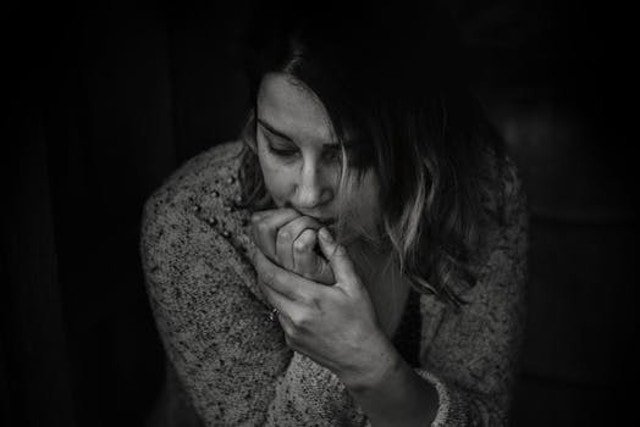
Getting pregnant can be such an exciting time for women. It’s a time when you really learn what your body is capable of and the beautiful process of growing a human inside your body. While many pregnancies do end with a beautiful baby at the end to hold, some do not.
Even though it’s such a common occurrence, or more common than many people think, stating that you had a miscarriage still holds this stigma with it. According to the Centers for Disease Control and Prevention, more than 1 million women have a miscarriage every year. [1]
That‘s approximately 1 in 5 women. That’s a pretty big statistic. But we don’t talk about it. There are people that don’t find out their best friends had a miscarriage until years later because it’s just so stigmatized. So when it does happen to women, who do they turn to, where do they get their information from?
That’s what this is here for. Women should know what to expect from the physical aspect to the emotional and mental aspect of having that first period, or shark week, or aunt flow, or whatever it is that you call it after you lose your baby.
First Let’s Get the Feelings Out of the Way
You are reading this for a reason; you’ve experienced a miscarriage. And you know what? I’m sure that thinking of your period is the last thing you actually want to do. Some welcome it because then they know they can have another child, or try again.
Others dread it because of horror stories. But before we worry about the period aspect, some women had some great advice for moms that are just undertaking this huge life change.
“let yourself grieve” but also “don’t be surprised if you don’t feel much emotion at all.”[2] It’s really about embracing the process; the process of realizing that a child didn’t come to fruition, but that there is hope of another chance to do it again.
So take the time to feel and then go from there. Find your support system because that can be a tremendous help.
How Long Will the Wait Be
Not having a period when pregnant is sometimes one of the best things about being pregnant. So now that you aren’t, there is the whole getting that first one again.
Your first period is going to generally come any time after you have had 20 consecutive days of having no bleeding after the miscarriage. This happens roughly around 4-6 weeks after it.[3]
What to Expect
Honestly, just like anything else, you really can’t get one person advice as to how it was and expect it to be the same for you. Everybody is different, and that means that yours could react differently than your best friend or neighbor, or another person.
It can range from very heavy to just above spotting. You may have a lot of cramps or no cramps. It could start off heavy and get really light in a short time frame. Or you could have spotting for several days, then all of a sudden have a full heavy period. [4]
You should worry if you are going through a pad every hour or so for more than a week because that isn’t considered normal and a doctor’s appointment should be in your near future.
What if your Period is Irregular?
Now some may not get a “regular” period back. This can be just as frustrating as anything else because now you don’t know if you can try again if you are ovulating, and generally thinking what is wrong with my body? There are a few reasons as to why it could be irregular.
- It could be that you haven’t actually finished expelling the fetal tissue and maybe even some placenta. Depending on how far along you were in your pregnancy, it could mean there is more that has to come out.
But if you have been dealing with spotting and heaving bleeding on and off since the miscarriage.[5] - Maybe you aren’t actually ovulating. That’s essentially what a period is, you ovulate, the egg doesn’t get fertilized, and you have a period shedding the lining of the uterus.
- It could be normal for you. Consider what your schedule used to be like. Was it irregular when you first started having a period?
- Last but definitely not least, you could potentially be pregnant (yes that quick). If you started ovulating and you’ve been sexually active, you could have had a moment at the right time and are on your way to having that rainbow baby.
While it is recommended that you take some time to let your body heal, it’s definitely a possibility. Take a test, see what happens.
A miscarriage is not something that any woman wants to go through. Its emotionally and physically draining. But let’s not let the stigma of talking about it hinder women.
Let’s make it a conversation, let’s make it okay to talk about, because you know what, it is okay, it will be okay, and it’s normal. The more that we know, the more comfortable the conversation, and the more information that people can share to help others through that time. However, hopefully for those who have suffered, a rainbow baby is in the future.
References
- https://www.cdc.gov/nchs/data/nvsr/nvsr64/nvsr64_08.pdf
- Healing After a Miscarriage (Moore, F.) Parenting. http://www.parenting.com/article/healing-after-miscarriage
- What to Expect About First Menstruation After the Miscarriage. (Author unknown) http://www.newkidscenter.com/First-Period-after-Miscarriage.html
- Your First Period after a Miscarriage. http://www.pregnancyloss.info/first_period.htm
- Irregular Periods After Miscarriage: What you Need to Know (Vengrow, B. G.). Parents. https://www.parents.com/pregnancy/complications/miscarriage/irregular-periods-after-miscarriage-what-you-need-to-know/




I had a chemical pregnancy, miscarriage. Bleeding stopped March 8th and my doctor said I should be expecting my period soon after (2 weeks aprox) I got it on March 17 and the first day and a half was heavy and the tapered to light pink when I wiped. Today is March 27 and I still have it ( day 11) with all the symptoms, crampy, mood swings, food cravings… please help.. it not normal and we are wanting to try again asap.
Thank you again, Sheilah
Hi Sheilah, most women experience a period that is similar to their regular period, however some do experience ones that are longer and heavier than normal. Generally, that isn’t a cause for concern, however if it does go on for another cycle I would recommend discussing with your doctor. Good luck